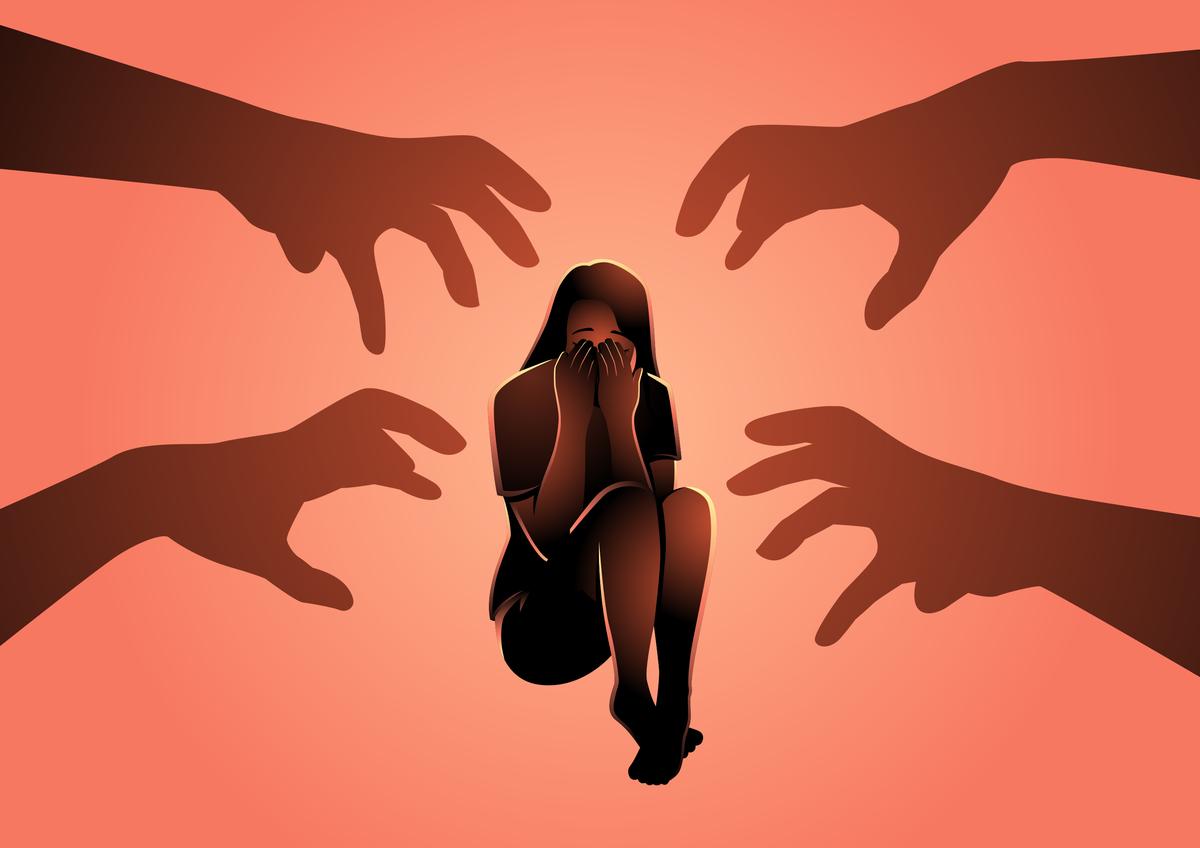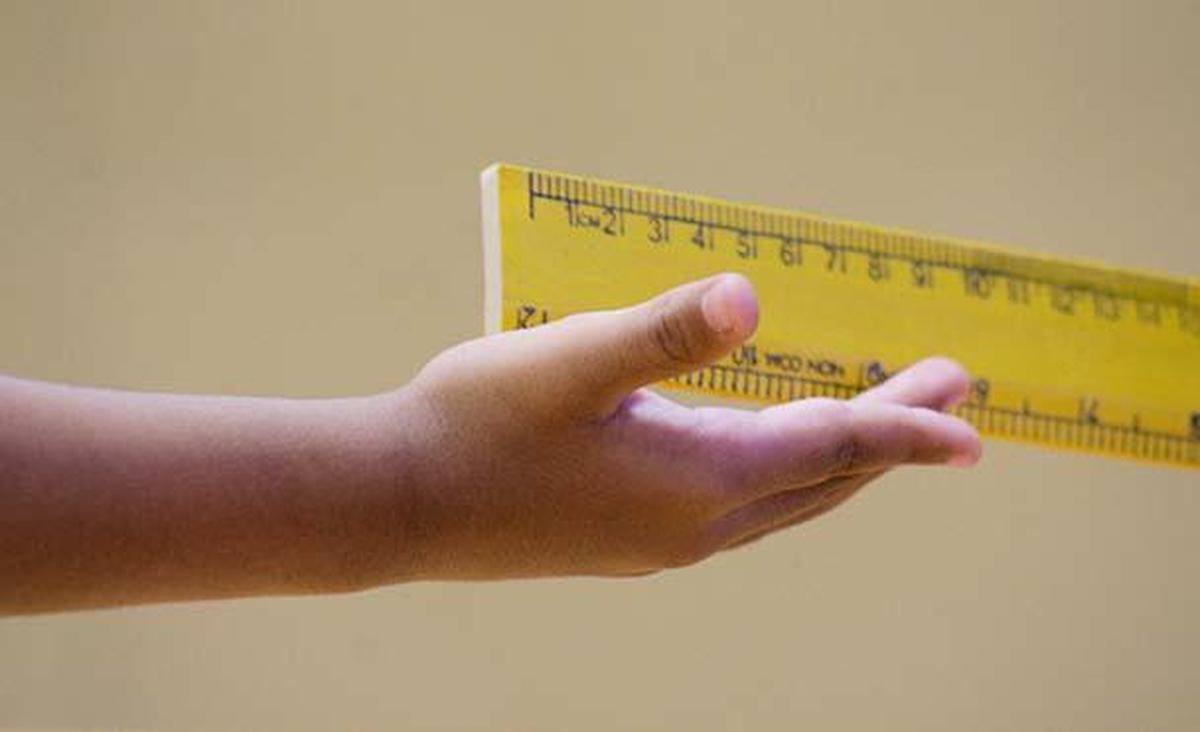In a distressing turn of events that has sparked widespread outrage, Bengaluru police have registered a case against the principal, a teacher, and the owner of a private school for allegedly assaulting a nine-year-old Class 5 student. The incident took place on October 14 at a private school in the Sunkadakatte area near Magadi Road. According to police reports, the child was beaten with a PVC pipe and later confined in a room for several hours, causing visible injuries and emotional trauma. The case has reignited concerns over child safety in educational institutions.
Parents of the assaulted child have demanded strict action and immediate intervention from the education department. They allege that the school tried to suppress the incident to protect its reputation, forcing them to approach the police. The child’s father stated that his daughter has been traumatized and refuses to attend school since the assault. The family has also sought counseling for her recovery. Several parents of students from the same institution have expressed concern, claiming that similar complaints in the past were ignored, raising questions about the school’s disciplinary culture.
The incident has reignited public debate over corporal punishment and child safety in private schools. Though India banned corporal punishment under the Right to Education Act, enforcement remains inconsistent. Activists note that many schools continue using physical and verbal intimidation as disciplinary tools, especially in lower grades. They stress that such actions not only violate the law but also damage a child’s confidence and sense of security. The National Commission for Protection of Child Rights (NCPCR) has repeatedly urged states to establish monitoring cells, but compliance remains weak.
Psychologists warn that incidents like these can have long-term effects on children’s mental health. The humiliation and physical pain can lead to anxiety, social withdrawal, and distrust of authority figures. Experts emphasize that teachers need proper training in positive reinforcement techniques and classroom management. Rather than punishment, educators must focus on dialogue, empathy, and behavior modeling. Many argue that schools should conduct regular workshops on child rights and emotional well-being to prevent such occurrences and promote a more nurturing learning environment.
Following the registration of the FIR, education officials visited the school to review safety protocols and interview staff members. Preliminary findings indicate lapses in internal grievance redressal mechanisms. The school’s complaint box and student welfare committee were found to be inactive. The district education officer has ordered the school management to submit a detailed report within a week. Authorities are also exploring whether the school violated any child protection norms under the Juvenile Justice Act.
The case has drawn strong reactions from parent associations and advocacy groups across Bengaluru. They have called for stricter accountability measures, including CCTV surveillance in classrooms, grievance cells with external representation, and transparent reporting of disciplinary actions. Many parents have begun reconsidering their children’s enrollment in schools where teachers allegedly resort to aggression. The incident has, once again, underscored the urgent need for reforming the culture of fear that persists in some educational institutions.
The private school in question has maintained that the incident was a misunderstanding, claiming that the teacher had “only disciplined” the student. However, legal experts have criticized this defense, stating that no justification can override a child’s right to safety and dignity. They assert that under the Protection of Children from Sexual Offences (POCSO) and other child welfare laws, even minimal physical harm constitutes a serious offense when inflicted by authority figures. The school’s management now faces both legal scrutiny and reputational damage.
Child rights organizations have urged the state government to set up a helpline and awareness campaign on identifying and reporting abuse in schools. They argue that children often hesitate to speak up due to fear of retaliation or disbelief. A safe reporting mechanism, coupled with mandatory teacher sensitization programs, can bridge this gap. The incident has become a wake-up call for institutions to re-evaluate their approach toward discipline and ensure that every educator is trained to handle students responsibly and compassionately.
As investigations continue, the focus has shifted to broader accountability within Karnataka’s education system. Policymakers are now discussing whether to impose stricter penalties on schools that fail to protect students from abuse. The outcome of this case could set a precedent for future enforcement of child protection laws. For the young victim and her family, justice remains the primary concern — but for society, the greater lesson lies in rebuilding trust in schools as places of learning, not fear.


Allegations, Response and Legal Action
The complaint was lodged by the student’s mother, who stated that her son was punished after returning to school following a two-day absence. A female teacher allegedly scolded and hit the boy before sending him to the principal’s office. There, the principal is said to have beaten the child with a PVC pipe on his hands, legs, and back, while another teacher restrained him. The school owner, who was also present, reportedly did nothing to stop the assault. The child returned home later that day with bruises and swelling, prompting his mother to file a police complaint.
Police have registered a case under Section 75 of the Juvenile Justice Act for cruelty to a child and under relevant sections of the Bharatiya Nyaya Sanhita for voluntarily causing hurt and criminal intimidation. Investigators confirmed that medical examinations supported the complaint’s claims of injury. The accused principal, teacher, and school owner have been questioned and granted conditional bail pending further inquiry. Meanwhile, the state’s Department of School Education has sought a detailed report on the incident and directed the school to cooperate fully with the investigation.
According to sources, the school attempted to downplay the incident by offering the child’s parents a transfer certificate and advising them to withdraw him from the institution. The parents refused, insisting on accountability and justice for the assault. The boy, still shaken, is currently receiving counselling. The case has stirred anger among other parents, several of whom gathered outside the school demanding strict punishment for the accused and stronger safeguards for students. Local residents have also urged the government to conduct random inspections of private schools to ensure compliance with child protection guidelines.

Broader Implications and Systemic Failures
This shocking case has once again raised urgent questions about safety and accountability in private schools. Despite repeated government circulars banning corporal punishment, such incidents continue to surface, revealing gaps in monitoring and enforcement. Many education activists have condemned the incident as an example of unchecked authority within school managements. They argue that several private institutions lack internal grievance redressal mechanisms and that students, especially those from lower grades, are often too afraid to report mistreatment.
Child rights advocates have also pointed out that while the law mandates every school to have a designated child protection officer, few actually implement this rule. In many cases, complaints by parents or students are ignored, and punitive measures are replaced by administrative settlements that silence victims. Experts say that Karnataka’s education department must treat this case as a wake-up call to review private school licensing procedures, teacher training on behavioural conduct, and mandatory compliance checks. The growing number of such incidents reflects a systemic failure that requires immediate correction.
Meanwhile, psychologists emphasize that corporal punishment can cause long-term damage to a child’s mental health, leading to fear, low self-esteem, and poor academic performance. They urge schools to adopt restorative practices — such as counselling and positive reinforcement — rather than physical discipline. For a city known for its reputed private education sector, such incidents tarnish Bengaluru’s image and call for urgent introspection within the academic community.
Voices of Parents and Community Outrage
The incident has triggered intense reactions from parents across the city. Many expressed disbelief that such cruelty could occur within a classroom, a space meant for learning and safety. Several parent associations have demanded immediate suspension of the accused staff and strict disciplinary action against the school’s management. They also called for mandatory installation of CCTV cameras in all classrooms and teacher training programs on child sensitivity. Parents argue that if teachers are not held accountable, children will continue to suffer in silence, fearing retaliation for speaking out.
The education department has announced that it will soon conduct surprise audits of private institutions, focusing on safety protocols, staff background verification, and the presence of child protection committees. Officials have reiterated that any school found violating child safety laws will face license suspension. While these promises are welcomed, parents insist that reforms must move beyond paperwork to tangible change. Social workers involved in the case have also appealed to the state government to introduce a helpline specifically for reporting physical or emotional abuse within schools.

A Lesson for the Education System
This case serves as a stark reminder that schools must be sanctuaries of trust, not fear. The alleged assault of a Class 5 student underlines the urgent need to redefine discipline in classrooms and ensure every educator upholds the basic tenets of care and respect. As the investigation continues, child rights groups are demanding that the Karnataka government take exemplary action to deter similar misconduct in the future. They emphasize that accountability must extend not only to individuals but also to institutions that fail to protect their students.
For the young victim and his family, the road to healing will be long. The emotional scars left by such experiences often linger far beyond physical wounds. Yet, their decision to seek justice rather than silence has ignited a larger conversation about how schools handle discipline and responsibility. As Bengaluru reflects on this disturbing event, one truth stands clear: no lesson, rule, or authority can ever justify the violation of a child’s dignity. This heartbreaking incident must become the turning point toward a safer, more compassionate education system for every student in Karnataka.
Follow: Karnataka Government
Also read: Home | Channel 6 Network – Latest News, Breaking Updates: Politics, Business, Tech & More

